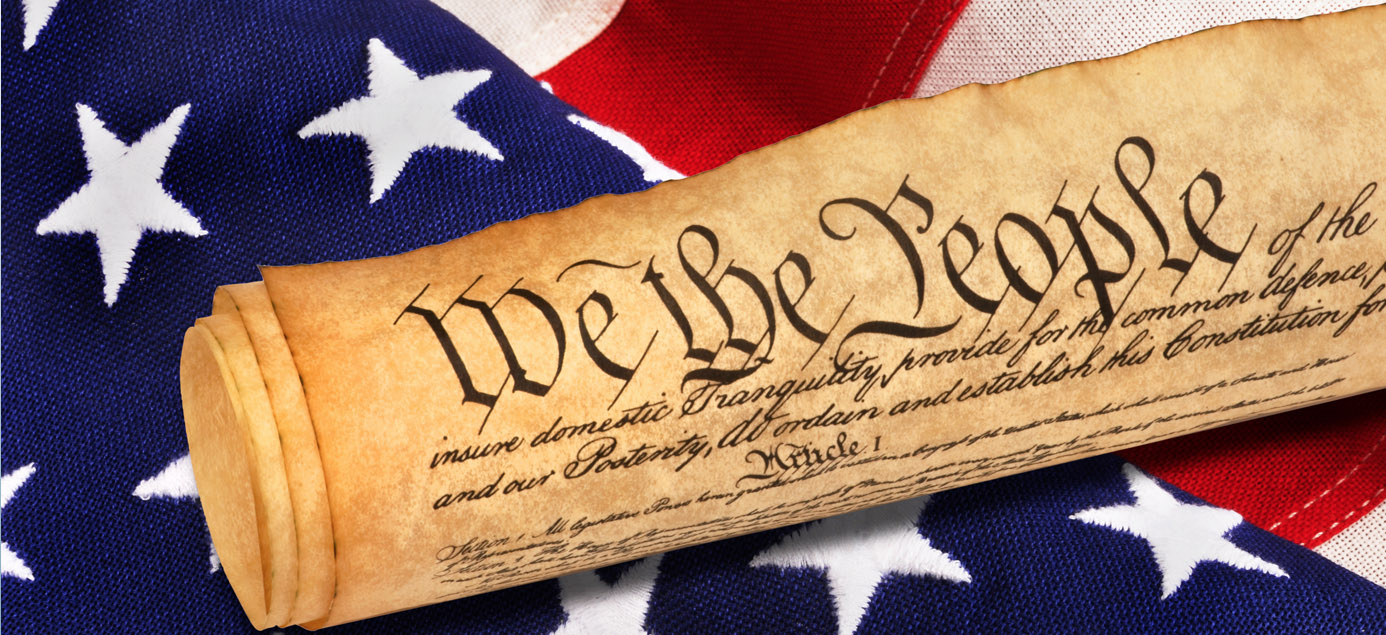Constitutional Law
For over two centuries, the federal constitution has laid out the individual rights that every American is entitled to and enumerated both the powers and limits of our governments. However, the document doesn’t defend itself, and so time and again Americans have taken to the courts to protest overstepping government action or infringements on the rights of individuals. This struggle to ensure that America as it exists matches with the grand and glorious promises laid out in our founding documents lies at the beating heart of the legal profession in America, and the lawyers at Solomon, Saltsman, & Jamieson take great pride in playing their own parts in it.
The First Amendment has increased in importance in recent years, and its limits are hotly contested. It prevents the government from officially supporting one religion, or unduly impairing individuals in the exercise of their own beliefs. It also protects the right of freedom of speech and of the press; which in recent Supreme Court cases have covered everything from wedding cakes to gerrymandering. In years past, challenges under the First Amendment have struck down laws against pornography and obscenity, banished censorship and banned books lists, and protected whistleblowers and the press outlets that publish them. Last, but most assuredly not least, the First Amendment also protects the people’s right to “peaceably assemble for the redress of grievances.” In these politically-charged times, protecting the people’s right to assemble is vital to protecting the health of our democracy.
The Second Amendment protects the right to bear arms. Though the Supreme Court has held that the right extends to individuals, courts have not been willing to strike down state and local gun control measures en masse. With 3-D printing on the rise, the specter of home-made guns presents another potential challenge to be before the courts.
The Fourth Amendment protects against unreasonable warrantless searches and seizures. While most frequently litigated in the context of criminal law, the Fourth Amendment also is sometimes invoked in land-use disputes, especially if inspectors enter private property to look for violations without a legal right to do so and over the objections of the property owner.
The Fifth Amendment provides significant protections to the accused in criminal cases – the right against self-incrimination, the requirement that all federal felonies and capital crimes first pass through a grand jury, and the right to not be tried twice for the same offense. It also provides benefits to individuals whose property is interfered with or commandeered by government action; the Takings Clause requires that such property owners must be compensated. But the most frequently applied section of the Fifth Amendment is the Due Process clause.
Due Process is one of the fundamental protections granted by the Constitution, and though oceans of ink have been spilled on defining and debating its contours, in general it means that any government action must be fair and reasonable. Though the exact nature of the protection varies based on the particular procedure, some measure of fairness and even-handed procedure is due in every governmental proceeding, whether it’s a criminal trial, a Supreme Court oral argument, or an administrative hearing passing judgment on an alcohol license.
These protections are some of the most hotly-litigated present in the Constitution, as it can be very tempting for governmental entities, purporting to act in the name of efficiency and justice, to neglect the rights of the accused. Solomon, Saltsman, & Jamieson knows this all too well; the firm’s lawyers have years of experience fighting and winning for clients in the face of unfair procedures in hearings before state and local municipal bodies and administrative bodies.
The Fourteenth Amendment also contains multiple rights. The Equal Protection Clause is the constitutional font of modern antidiscrimination laws, requiring that no-one be treated any differently by the law simply because of their skin color, ethnicity, sexual orientation, or gender. The Fourteenth Amendment also has a Due Process clause similar to that in the Fifth Amendment. This clause, however, requires that states at least conform to the minimum standards set forth by the federal Constitution.
While these rights are only part of the structures of governmental rights, limits, and responsibilities set up by the constitution, they are some of the most heavily litigated at the present moment, and frequently arise in everyday controversies and disputes. Additionally, it is important to note that while these rights are guaranteed to all Americans, each state has its own constitution as well. While many state constitutions simply reiterate the rights already laid out in the federal constitution, some state constitutions go above and beyond and grant their citizens even more protections. If you feel that you have been deprived of any other Constitutional rights – or even if you’re simply not sure – the lawyers at Solomon, Saltsman & Jamieson stand ready to advise you of your options, fight for you!




